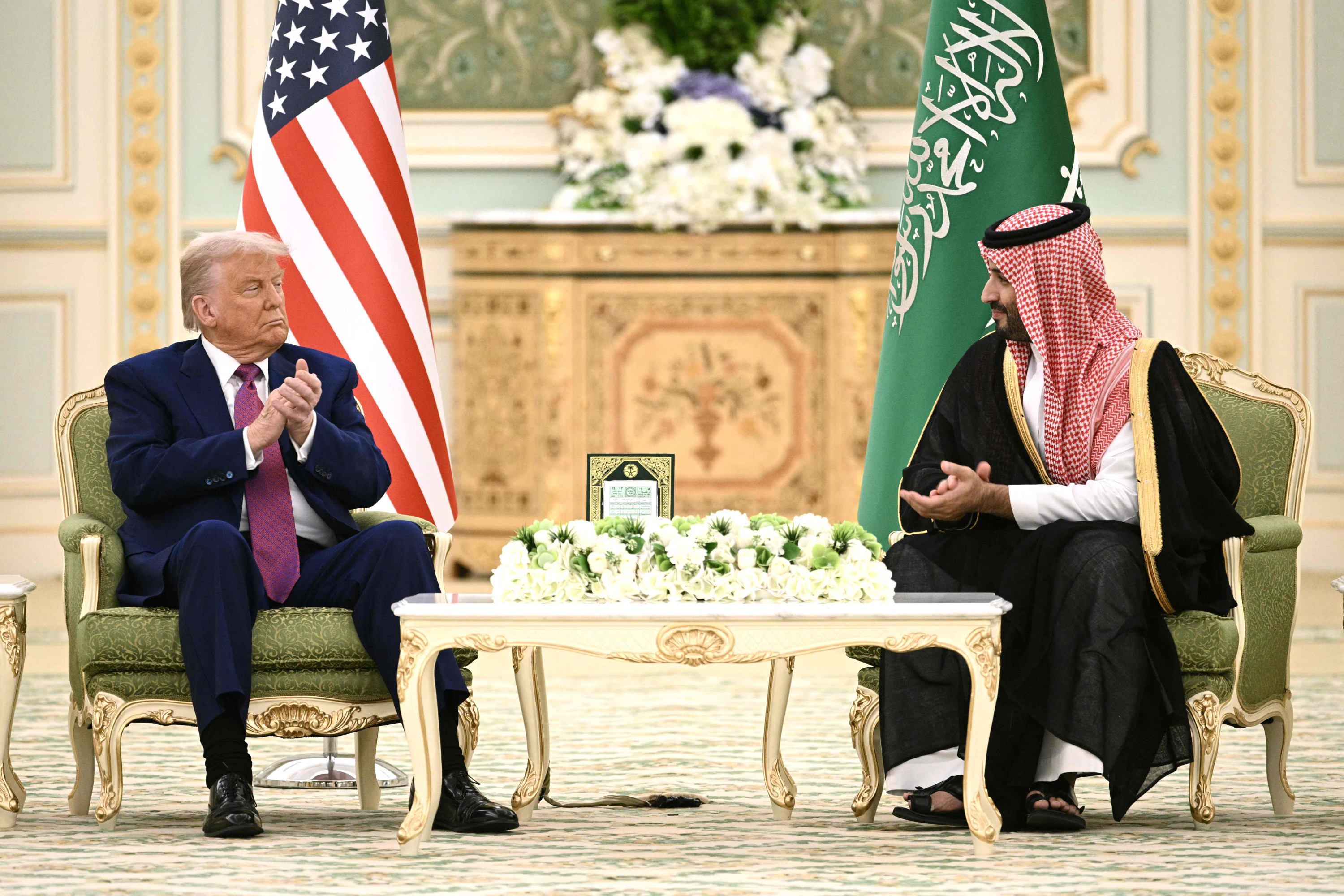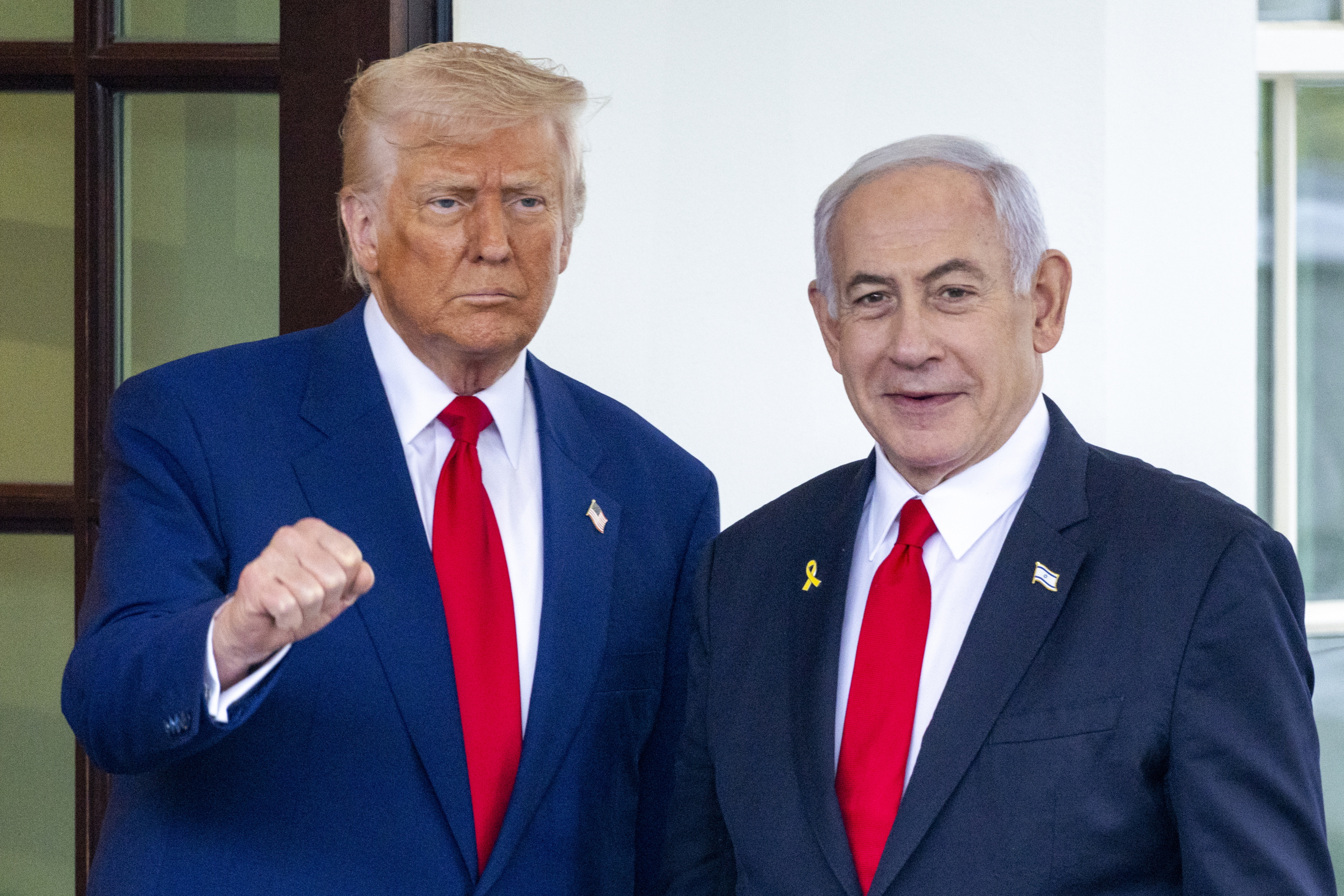Three reasons why US support for Israel in the Gaza war is in doubt, and what could happen next.

Breaking with the tradition of American presidents, where their first international destinations are their neighbors Mexico and Canada , Donald Trump began his first international tour this Tuesday - and for four days - visiting Saudi Arabia, Qatar and the United Arab Emirates, the three richest countries in the region and among the wealthiest in the world.
Seeking to promote a vision in which "trade and cultural exchanges defeat extremism," Trump signed the largest defense sales agreement in history with Saudi Arabia this Tuesday, worth nearly $142 billion, which will provide the Arab country with "state-of-the-art military equipment." He also plans to do the same with Qatar and the United Arab Emirates.

Netanyahu announced that the army will enter Gaza with all its forces in the coming days. Photo: EFE
And while his tour has a clear economic focus, so it's no coincidence that the countries he chose are the three richest Gulf territories with large oil reserves and significant assets in the tourism, hospitality, and real estate sectors, the Republican's visit also focuses on the conflicts in the Middle East , so it was particularly striking that he didn't include Israel—Washington's closest ally in the region—on his tour.
Hence, the big question regarding the course of the war in the Gaza Strip is whose pressure will be stronger: Trump's, demanding that Israel declare its end in exchange for the return of the 58 hostages still held by Hamas, or the ministers of the nationalist wing of Israeli Prime Minister Benjamin Netanyahu's coalition, who have already made it clear that if the war ends before Hamas is destroyed, the coalition ends.

Donald Trump, alongside Saudi Crown Prince Mohammed bin Salman. Photo: AFP
Tensions in Israel over the questionable US support for its war plans escalated Monday following Hamas's release of Edan Alexander, the Israeli soldier with US citizenship who spent 584 days in the hands of the terrorist organization and was tortured, held in a cage with his hands and feet tied, and whose diet only improved in the final weeks before his departure from Gaza.
Indeed, it is said that his release was due to Washington's direct dialogue with Hamas, even though Edan is believed to be the last surviving American hostage. Civilians Judith Weinstein and her husband Gadi Haggai, and soldiers Omer Neutra and Itay Chen, were presumed dead.
Therefore, the fact that his release was due to his American citizenship, as President Donald Trump himself intervened in his release after reaching a direct agreement with Hamas—although Israel has not officially recognized it—the perception within Israel is that this agreement gives Hamas a certain legitimacy internationally.

Israel blocked all aid entering the territory on March 2. Photo: AFP
This, coupled with Washington's direct talks with Iran over its nuclear program and Trump's recent decision to halt his attacks on the Houthis in Yemen to prevent them from attacking US ships, is causing great concern in Jerusalem.
Hence, the cumulative effect of the decisions taken by the Republican administration can be interpreted by the Arab world, including Israel's enemies, as a sign that the alliance with the United States is no longer impenetrable and that Israel cannot necessarily always count on the United States.
Dennis Ross, a former senior State Department official who served as a Middle East envoy under both Democratic and Republican presidents, told The Washington Post that voices within the Trump administration advocating for less US military entanglement in the Middle East are on the rise, while “Trump is likely to make it a top priority to bring billions of dollars of investment from wealthy Gulf Arab monarchies to the United States during his trip.”

The United States engaged in talks with Hamas to secure the release of Edan Alexander. Photo: @HenMazzig / X
“What we're seeing is that President Trump has a sense of what interests us, and that's the first thing. He defines the nature of his interests abroad not through a geopolitical or security context, but through an economic, financial, and trade framework. I think President Trump might have the view that, 'We give them $4 billion a year in military aid. I'm doing a lot to support the Israelis,'” Ross explained to the aforementioned outlet.
And while the US special envoy for the region, Steve Witkoff, emphasized that Trump remains committed to the Jewish nation, the issue is viewed with some suspicion in Israel.
Especially since it is not ruled out that, in addition to the political achievement of Hamas's direct dialogue with Washington, the central motivation was to get Israel to cancel the planned large-scale operation in Gaza, for which 60,000 Israeli reservists were recruited.
Although the Netanyahu government announced it will send a delegation to Doha, the capital of Qatar, on Tuesday to continue negotiations aimed at securing the release of the hostages, it announced that the Israeli army will enter the Strip "with full force" in the coming days and that it does not contemplate any scenario in which its country would halt the war.

The Israeli offensive in Gaza has left thousands dead, many of them civilians. Photo: EFE
He also stated that his government is working to find countries willing to accept Palestinians who, he said, could leave the Strip in large numbers.
The stated objective of the operation is to pressure Hamas into agreeing to release the hostages, but also to definitively destroy the terrorist group, something that is hotly debated within Israel because few believe it is possible to achieve both goals simultaneously.
In fact, the commander-in-chief of the Israel Defense Forces, Lieutenant General Eyal Zamir, acknowledged days ago that the operation could endanger the hostages.
Furthermore, Witkoff insisted that the US will pursue "a diplomatic solution" at all costs, which is the path by which most captives have been released and the one "preferred by everyone."

Despite the meeting between Trump and Netanyahu, the US has distanced itself from Israel. Photo: EFE
A position supported by the families of the captives and a large portion of the Israeli population. According to recent polls, 70 percent of Israelis want to give priority to the kidnapped, who, they know, have little time left when, of the more than 190 who returned to Israel, 41 were dead bodies. And of the 58 remaining in captivity, only 20 are known to be alive, while 35 were declared dead and three others are in doubt.
Added to this is the feeling among the families of the kidnapped victims that Edan Alexander was only spared because he holds foreign citizenship, so the pressure on Netanyahu is at its limit.
Jana Beris – EL TIEMPO Correspondent - Jerusalem
eltiempo





